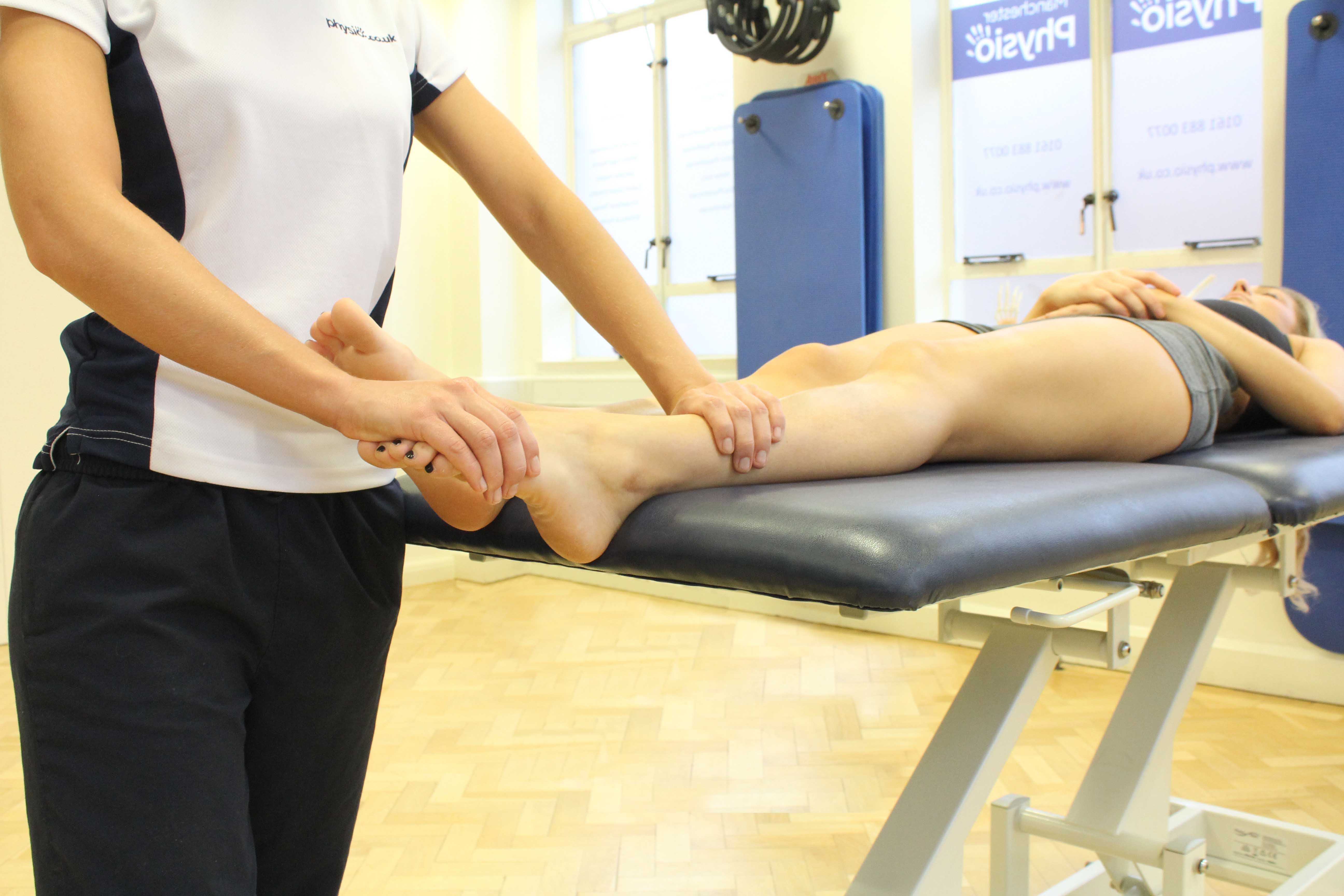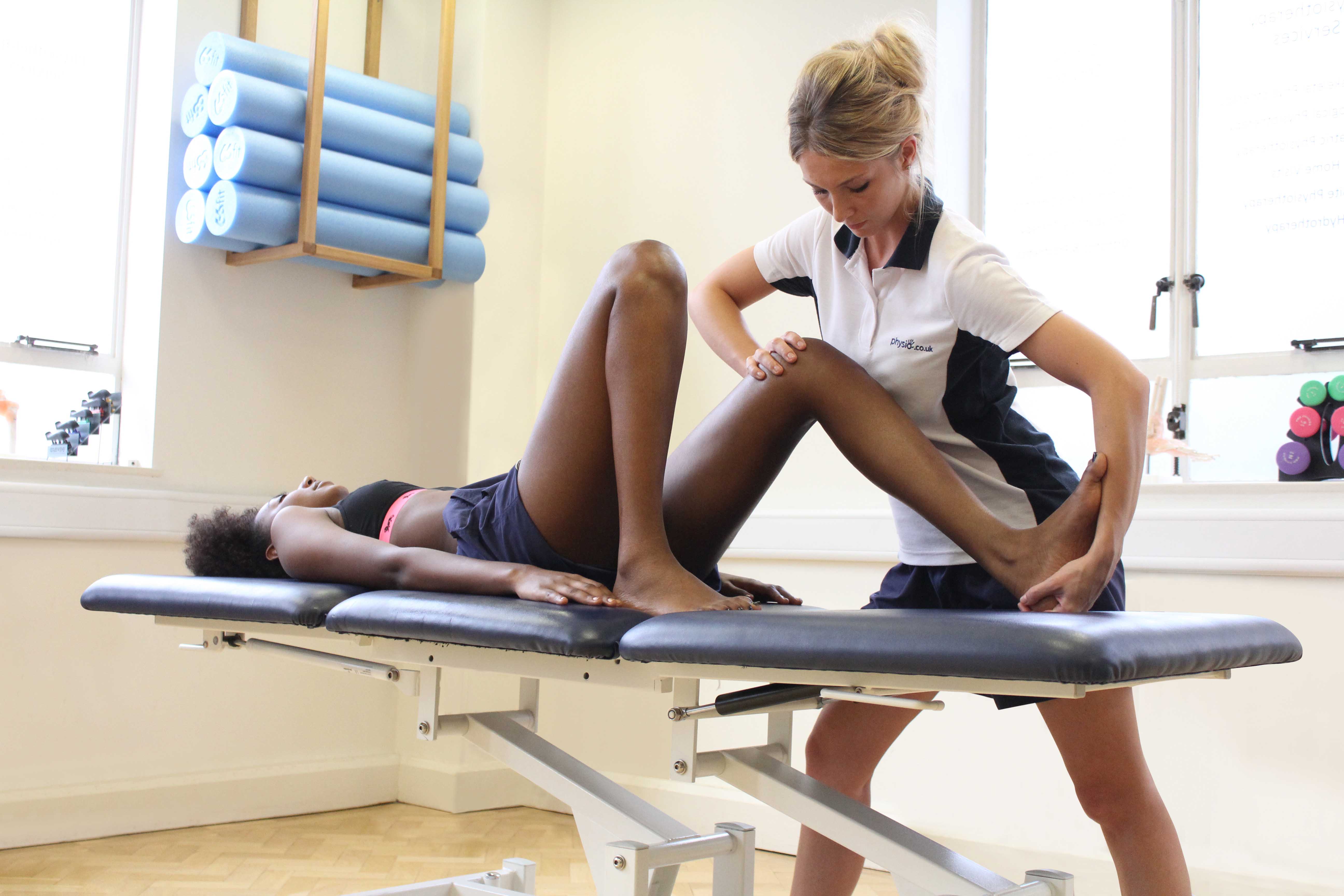What is an ankle ligament injury?
An ankle ligament injury, or sprained ankle, occurs when damage is caused to one or more ligaments at the ankle. Ligaments connect bone to bone and there are several at the ankle. When these are damaged it causes pain and can make walking painful and difficult. Ankle ligament injuries are very common and are classed in three categories of severity:
- Grade One – A small number of ligament fibres are damaged
- Grade Two – A large amount of ligament fibres are damaged with some swelling
- Grade Three – Complete rupture of ligament with severe swelling
 Above: Passive stretch of the connective tissues in the foot and ankle by experienced therapist
Above: Passive stretch of the connective tissues in the foot and ankle by experienced therapistWhat causes an ankle ligament injury?
Ankle ligament injuries are usually caused by trauma to the ankle. The ligaments are stretched to a point where they tear. This can happen in two ways:
- Inversion injury (ankle twisted inwards) – common injury
- Eversion injury (ankle twisted outwards) – uncommon injury
What are the symptoms of an ankle ligament injury?
The symptoms of an ankle ligament injury occur suddenly at the time of the injury and can include:
- Pain
- Pain on weight bearing
- Pain inhibited movement
- Stiffness
- Swelling
- Bruising
- Weakness
- Difficulty walking
Physiotherapy for an ankle ligament injury
Physiotherapy is very effective in the treatment of ankle ligament injuries. Treatment is initially focused on reducing pain and swelling before rehabilitating the ankle and returning the individual to normal activity. Treatment may include:
- Ice/cold therapy
- Electrotherapy
- Crutches
- Bracing
- Massage
- Stretching exercises
- Mobilisations
- Range of movement exercises
- Strengthening exercises
- Balance exercises
- Guidance on return to activity
- Advice on future prevention
 Above: Passive stretch of the achilles tendon performed by specialist therapist
Above: Passive stretch of the achilles tendon performed by specialist therapistCan an ankle ligament injury cause any long-term effects?
Most individuals with an ankle ligament injury should make a full recovery with physiotherapy. In severe cases, such as a grade three injury, the physiotherapist may suspect a fracture or dislocation and you may be referred onto your GP. In this case treatment and rehabilitation will take longer. If the injury is recurrent then this may indicate ankle instability and surgery may be required to solve the problem. Physiotherapy would be important in the rehabilitation form surgery.
To arrange an assessment with Physio.co.uk please contact us or call 0330 088 7800.

 0330 088 7800
0330 088 7800


































